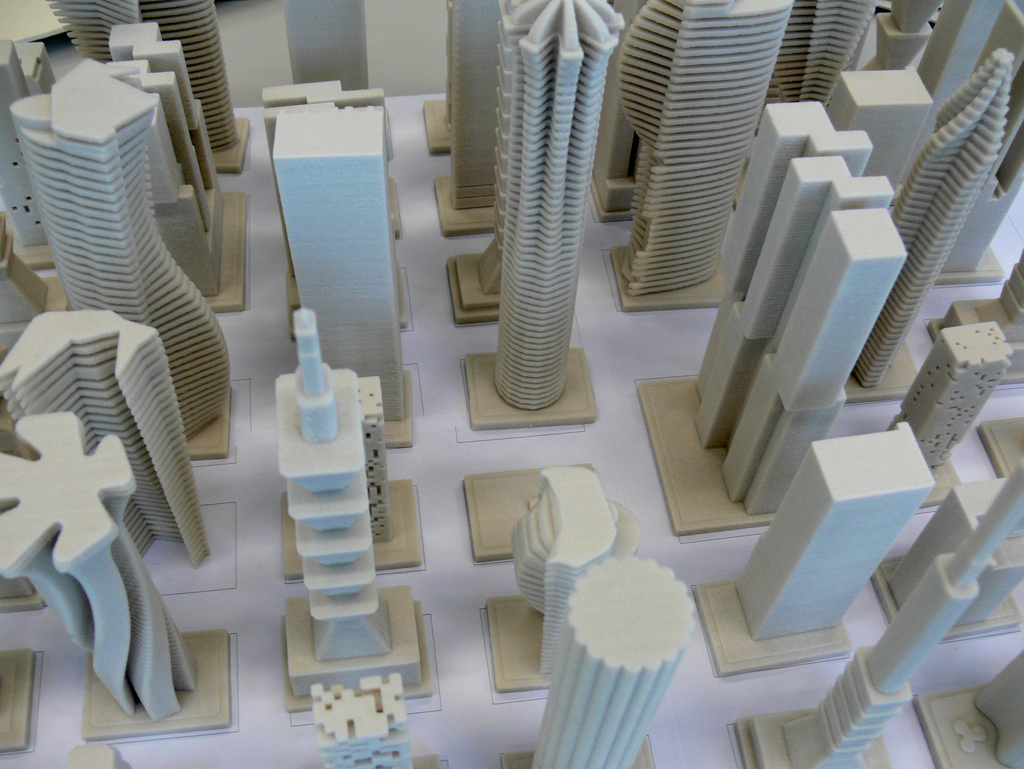The plan to build the world’s first 3D-printed skyscraper in Dubai was recently announced. If successful, this project holds the potential to change the face of construction the world over. Not only could it lead to faster erections of tall buildings, it could also help cities save on the costs since printing an entire building is bound to come with fewer expenses than using traditional methods.
Although most people have come to take them for granted, skyscrapers are a marvel of engineering that makes them incredibly difficult to build. Doing so with 3D-printed materials is likely to present its own difficulties, but a firm called Cazza Technologies is intent on being the first to actually build one.
In a recent interview with Construction Week Online, Cazza CEO Chris Kelsey noted how this project was above and beyond what his team was planning to do with 3D printing. The company certainly has the technological capabilities, but printing an entire skyscraper is still a whole other ballgame.
“When we first thought of implementing 3D printing technologies, we were mostly thinking of houses and low-rise buildings,” Kelsey said. “Developers kept asking us if it was possible to build a 3D printed skyscraper. This led us to begin researching how we could adapt the technologies for taller structures.”
Thanks to its gigantic robot 3D printers, creating complex architectural buildings is already possible for the company. Everything that is needed for erecting a tall construct can be 3D-printed, including all of the reinforcements necessary to keep the building upright, Futurism reports.
As to how Cazza actually intends to do something like this, it will involve mounting the printers onto tall cranes, much like the ones that regular construction businesses use. This is useful because building specialized equipment to build the 3D-printed skyscraper with would have cost more time and money.



 Baidu Approves $5 Billion Share Buyback and Plans First-Ever Dividend in 2026
Baidu Approves $5 Billion Share Buyback and Plans First-Ever Dividend in 2026  AMD Shares Slide Despite Earnings Beat as Cautious Revenue Outlook Weighs on Stock
AMD Shares Slide Despite Earnings Beat as Cautious Revenue Outlook Weighs on Stock  SoftBank Shares Slide After Arm Earnings Miss Fuels Tech Stock Sell-Off
SoftBank Shares Slide After Arm Earnings Miss Fuels Tech Stock Sell-Off  Tencent Shares Slide After WeChat Restricts YuanBao AI Promotional Links
Tencent Shares Slide After WeChat Restricts YuanBao AI Promotional Links  SpaceX Updates Starlink Privacy Policy to Allow AI Training as xAI Merger Talks and IPO Loom
SpaceX Updates Starlink Privacy Policy to Allow AI Training as xAI Merger Talks and IPO Loom  Elon Musk’s Empire: SpaceX, Tesla, and xAI Merger Talks Spark Investor Debate
Elon Musk’s Empire: SpaceX, Tesla, and xAI Merger Talks Spark Investor Debate  SoftBank and Intel Partner to Develop Next-Generation Memory Chips for AI Data Centers
SoftBank and Intel Partner to Develop Next-Generation Memory Chips for AI Data Centers  SpaceX Reports $8 Billion Profit as IPO Plans and Starlink Growth Fuel Valuation Buzz
SpaceX Reports $8 Billion Profit as IPO Plans and Starlink Growth Fuel Valuation Buzz  Amazon Stock Rebounds After Earnings as $200B Capex Plan Sparks AI Spending Debate
Amazon Stock Rebounds After Earnings as $200B Capex Plan Sparks AI Spending Debate  Nvidia Confirms Major OpenAI Investment Amid AI Funding Race
Nvidia Confirms Major OpenAI Investment Amid AI Funding Race  TSMC Eyes 3nm Chip Production in Japan with $17 Billion Kumamoto Investment
TSMC Eyes 3nm Chip Production in Japan with $17 Billion Kumamoto Investment  Sam Altman Reaffirms OpenAI’s Long-Term Commitment to NVIDIA Amid Chip Report
Sam Altman Reaffirms OpenAI’s Long-Term Commitment to NVIDIA Amid Chip Report  Instagram Outage Disrupts Thousands of U.S. Users
Instagram Outage Disrupts Thousands of U.S. Users  Nvidia Nears $20 Billion OpenAI Investment as AI Funding Race Intensifies
Nvidia Nears $20 Billion OpenAI Investment as AI Funding Race Intensifies  Nvidia, ByteDance, and the U.S.-China AI Chip Standoff Over H200 Exports
Nvidia, ByteDance, and the U.S.-China AI Chip Standoff Over H200 Exports 































